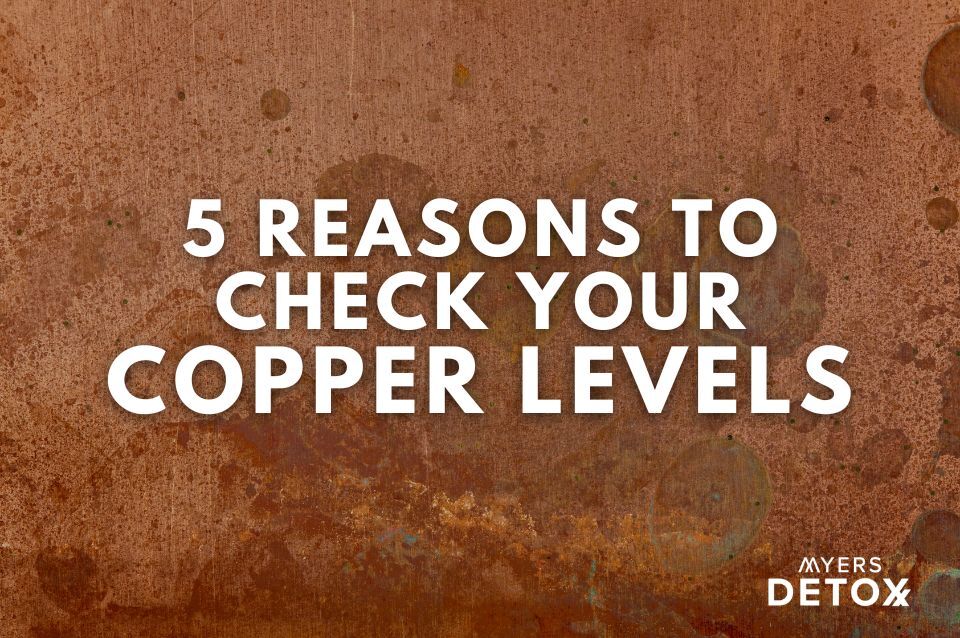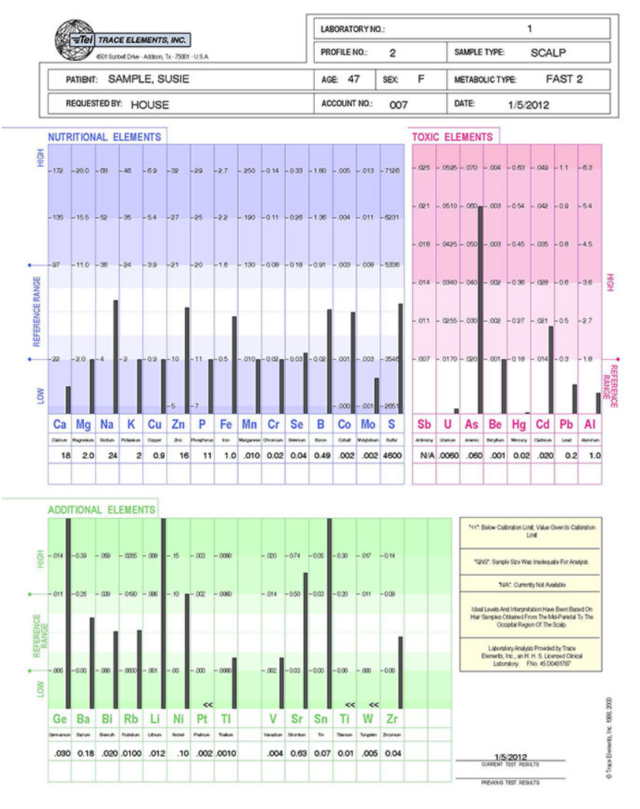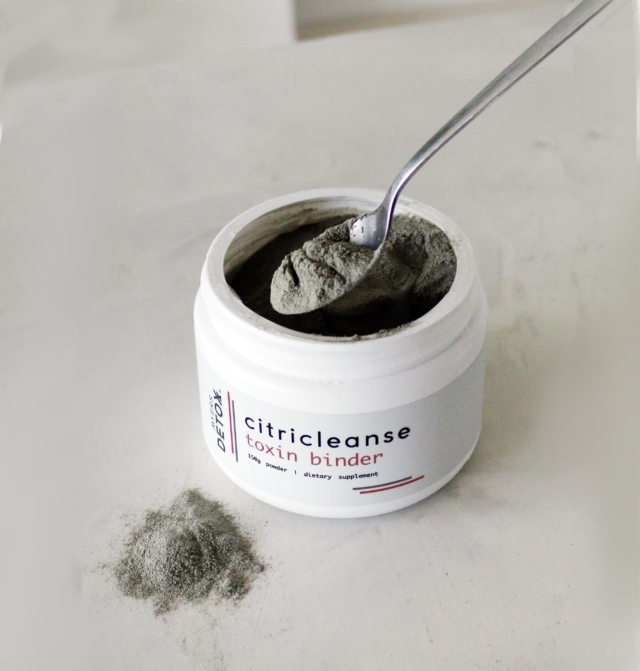Copper toxicity often goes overlooked because this nutrient plays many vital roles in your body.
Unfortunately, copper in excess can also cause serious damage and harm to your cells, tissues, organs, and glands.
So, how do you keep your copper levels in optimal balance?
In this article, you’ll learn:
- How copper toxicity can damage your cells and create havoc in your body
- The importance of the delicate balance of this nutrient to avoid deficiency or toxicity
- The ways in which copper can instigate hormonal chaos and why it’s simultaneously crucial for hormonal balance
- Why your stress, anxiety, and other common ailments may be rooted in a copper imbalance
- The best way to determine your copper levels
- How to safely, gently, and effectively detox copper from your body
What Copper Does In The Body

Copper is a trace mineral that your body requires for several physiological processes. For example, copper plays a role in[1]:
- Bone and connective tissue health – helping to remineralize your bones with calcium and support the strength of your connective tissue.
- Energy production – copper is an essential part of the electron transport chain in your mitochondria, which is the final step in energy production.
- Immune response – copper and zinc balance each other, and when one of these minerals goes out of balance, it creates disharmony in the immune system.
- Thyroid function – copper is necessary for promoting the synthesis of thyroid hormones.
- Reproductive system – copper plays a role in female fertility and is closely related to estrogen metabolism. As such, when copper is out of balance, it can cause various female health issues.
- Nervous system – Copper stimulates the production of the neurotransmitters epinephrine, norepinephrine, and dopamine and plays a role in serotonin production. These neurotransmitters are vital for healthy mood and neurological function.
What makes copper particularly unique is that this mineral is both essential and toxic to the human body. In the correct balance, copper is key to health and longevity. However, when exposed to excessive amounts of copper, this mineral can be incredibly damaging to your cells, increasing oxidative stress and inhibiting cellular proliferation[2].
Furthermore, copper toxicity is actually much more common than you may think. Below are some signs that your body is holding a toxic amount of copper.
Signs Of Copper Toxicity
- Anxiety
- Depression
- Irritability
- Gastrointestinal issues like abdominal pain or vomiting
- Excessive thirst
- Headaches
- Fatigue
- Brain fog
- PMS symptoms
- Irregular heartbeat
- Insomnia
- Excessive sweating
Copper toxicity can be hard to pinpoint because so many symptoms related to this nutrient can also be attributed to other physiological conditions. However, it’s important to emphasize that these symptoms come from copper’s toxic impact on your organs and biological systems. So, although you may have another health condition creating your imbalances, copper could be the underlying culprit.
Let’s dive deeper and examine how excessive copper impacts your biology.
5 Reasons To Check Your Copper Levels

#1 Psychological Conditions
Copper plays an important role in the nervous system, helping to regulate neurotransmitters that play a role in psychiatric conditions. When copper is in balance, you feel calm and steady, but high levels of copper rev up the nervous system and can produce a range of symptoms and psychiatric conditions, including[3][4][5][6]:
- Anxiety
- Racing thoughts
- Restlessness
- Insomnia
- Depression
- OCD (obsessive-compulsive disorder)
- Bipolar disorder
If you experience any of the above symptoms or conditions, checking your copper levels is crucial so you can get to the root of your imbalances.
#2 Estrogen Dominance
Studies show that copper can increase estrogen levels, throwing off the delicate estrogen-progesterone balance in your body. As a result, you may display signs of estrogen dominance[7].
Estrogen and progesterone are two critical hormones in reproductive health, and their relationship is responsible for your monthly cycle as well as your overall fertility. When estrogen is high, it can result in overall increases in PMS symptoms, in addition to:
- Irregular menstrual cycles – light or heavy bleeding
- Breast tenderness and swelling
- Low libido
- Fibrocystic breasts
- Headaches
- Anxiety
- Weight gain
- Hair loss
- Cold hands and feet
- Fatigue
- Brain fog
- Insomnia
Men can also experience high estrogen levels, which can impact fertility due to lower-quality sperm production and erectile dysfunction. Another tell-tale sign of high estrogen in men is the development of breast tissue growth.
Estrogen dominance is actually quite common, and many people aren’t sure why their hormones are so out of whack. While many potential contributors to high estrogen levels exist, copper toxicity should not be overlooked.
Another factor that comes into play here is the use of copper IUDs. While these non-hormonal birth control options are meant to leave your hormones out of the equation, they can actually increase your body’s copper levels, which will ultimately impact estrogen anyway. So if you use a copper IUD, it’s important to check your copper levels regularly.
#3 Heart Disease
One of the many downfalls of excessive copper is that it can induce oxidative stress and inflammation in your body – two contributing factors to heart disease[2].
Unsurprisingly, studies show that high levels of copper in your blood are associated with a higher risk of cardiovascular disease and stroke[8][9].
While the exact mechanism behind copper’s impact on heart health is unclear, animal studies show that high levels of copper may inhibit the heart’s sympathetic activity, slowing blood pressure and heart rate to unhealthy levels[10].
On the other hand, it’s well documented that copper deficiency may also lead to cardiovascular issues such as high blood pressure, ischemic heart disease, reduced blood clotting, anemia, increased inflammation, and potentially atherosclerosis[11].
With heart disease ranking as the leading cause of death in the US, assessing your copper status for its impact on heart health is vitally important.
#4 Alzheimer’s Disease
It’s well understood that heavy metal toxicity can impact the brain and can instigate neurodegeneration like that seen in Alzheimer’s disease and other neurological conditions.
Studies show that even low levels of copper can bypass your liver and end up in circulation. From here, copper may pass through the blood-brain barrier and cause damage to various parts of the brain.
While the exact mechanism is still unknown, it’s believed copper may contribute to neurodegeneration in the brain by binding to amyloid plaques, expediting the plaque formation process[12].
Research into copper’s role in Alzheimer’s is so compelling that some investigators are even looking into anti-copper drugs as potential therapeutic agents[13].
#5 Thyroid Disease
Thyroid function is a perfect example of why the healthy balance of copper in your body is so crucial for optimal health.
On the one hand, copper is a necessary nutrient for the production of thyroid hormones through its activity in stimulating TSH (thyroid stimulating hormone) production.
However, research shows that too much copper may instigate hyperthyroidism by pushing your thyroid to excrete excessive amounts of thyroid hormone[14].
When your body is producing too much thyroid hormone, it can result in hyperthyroidism, which shows up as:
- Anxiety
- Irritability
- Insomnia
- Excessive urination and sweating
- Excessive thirst
- Irregular heartbeat
- Unexplained weight loss
And, of course, your hormones are always working in concert with one another, so when your thyroid becomes unbalanced, it can also impact your other hormonal systems, like your sex and adrenal hormones.
How To Check Copper Levels
By far, the best way to assess your copper levels is through an HTMA (Hair Tissue Mineral Analysis).
Although many practitioners will order blood or urine tests, an HTMA will give you much more information than these tests alone.
Your hair is one of the primary places with your body dumps excess minerals and heavy metals, so when you test your hair, you’ll get a better picture of how much copper is in your system and what your toxic load looks like, as opposed to how much is in circulation.
The best part is that instead of having to pee in a cup or get blood work drawn, with an HTMA, all you need to do is snip off a portion of hair and send it into a lab – you don’t even have to leave your house.
How To Reduce Your Copper Exposure

If you’ve received results from a heavy metal test that show your copper levels are high, or even if you suspect some copper overload, there are several steps you can take to rescue your copper exposure:
Remove copper IUDs
If you have a copper IUD and you’re presenting with high copper levels, then removing your IUD and replacing it with another form of birth control is vital.
Be wary of high-copper foods
Certain foods tend to be high in copper. While getting enough copper in your diet is important, if you’re overloaded, then you’ll want to cut back on or avoid:
- Organ meats
- Oysters and other shellfish
- Salmon
- Shiitake mushrooms
- Nuts and seeds (especially cashews, sesame seeds, and sunflower seeds)
- Dark chocolate
- Tofu
- Chickpeas
Filter your drinking water
Copper pipes and corrosive water are a match made in copper-toxicity heaven. Filtering your water is a good idea whether or not you’re concerned about copper, but if you have copper pipes, it makes it even more crucial.
Any high-quality water filter should work to filter heavy metals, but make sure that your filter specifically indicates that it filters heavy metals like copper.
Up your mineral intake
Deficiencies in minerals such as manganese, iron, selenium, and chromium can contribute to copper accumulation in your body. Therefore, to ensure that your minerals are balanced, include foods and supplements that will round out your mineral intake.
For example, fulvic and humic acid are nutrients that come from the soil and provide an incredibly rich source of minerals that your body is likely lacking.
Support liver health
When sluggish or overwhelmed, your liver can predispose you to copper toxicity. In fact, a sluggish liver will predispose you to pretty much every type of toxicity out there. To keep your liver functioning optimally, provide it with nutrients that can support its processes like those found in Daily Detox.
Maintaining healthy zinc levels
Zinc and copper work together to balance one another out. This means that when your levels of zinc plummet, it sets the stage for copper accumulation. If you know that your zinc levels are suboptimal, you can take a zinc supplement to get your status back up. Unfortunately, many of the foods that are high in zinc are also high in copper, so although food is typically the best first step, in this case, you should go right for the supplement until your zinc is back in range.
Support Your Body With a Heavy Metal Detox
In addition to the above suggestions, if your copper levels are high, you’ll want to boost your body by doing a gentle heavy metal detox.
I use the word gentle because many companies formulate heavy metal cleanses that basically push toxins out of your cells, but in a manner that doesn’t allow for proper elimination. When this happens, you end up feeling really crappy, and all of those toxins just relodge back into your tissues.
Heavy metals can be tricky to eliminate because they love to stick around in your cells, which is why a gentle yet effective heavy metal detox is always the best way to go.
This is why I created the CitriCleanse toxin binder. This formula consists of powerful ingredients that will assist with all phases of your body’s natural release and elimination of contaminants and help ensure that they are flushed out normally.*
With humic and fulvic minerals to balance out your copper load, your cells will be able to naturally release their toxic load into circulation. Then grapefruit pectin comes in to gently surround the toxins for elimination, while cilantro and grapefruit pectin and the minerals support the digestive release of toxins from your body.
With the help of the CitriCleanse toxin binder, your body can gently release and transport impurities so that they are prevented from being reabsorbed or redistributed elsewhere in your system, thus mitigating the accumulation of further toxicity.*
Takeaway
Many of the symptoms of excess copper resemble other conditions, making copper toxicity hard to diagnose. This is true of most heavy metal toxicities, which is why I suggest that people do an HTMA periodically to check in on their heavy metal load.
Once identified, copper toxicity is actually very manageable as long as you take the right steps to correct it. Begin by eliminating sources of copper in your daily life, such as drinking water, food, IUDs, and so on.
Next, support your body in releasing heavy metals by taking a high-quality toxin binder like CitriCleanse. The good news is that CitriCleanse will not only help you release copper but also help your body bind and eliminate other heavy metals that may be contributing to your health issues.
Disclaimer: These statements have not been reviewed by the FDA. CitriCleanse is a dietary supplement that is not intended to diagnose, treat, cure, or prevent any disease. A Hair Tissue Mineral Analysis (HTMA) is not designed to treat, cure, or prevent any disease. Neither are intended to replace any medication or healing modality prescribed by your medical doctor.












